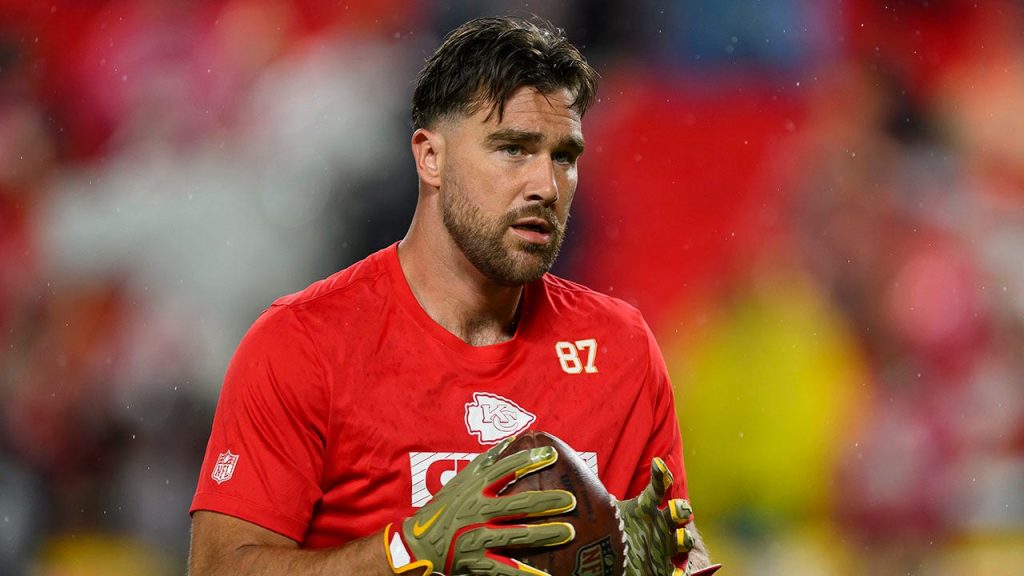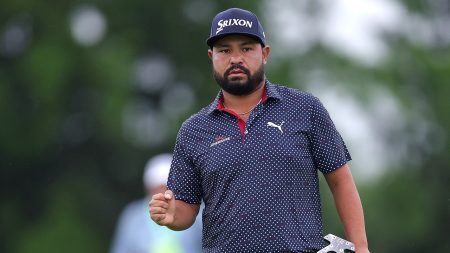The Kansas City Chiefs’ divisional playoff victory against the Houston Texans ignited a firestorm of controversy surrounding two roughing the passer penalties called against the Texans in defense of Chiefs quarterback Patrick Mahomes. The contentious calls, which occurred in crucial moments of the game, sparked accusations of preferential treatment towards Mahomes and fueled a broader debate about the consistency and fairness of NFL officiating. While many players, coaches, and fans weighed in on the heated topic, Chiefs tight end Travis Kelce opted for a strategic silence, humorously invoking his Fifth Amendment right to avoid commenting on the matter during his podcast, “New Heights.”
The disputed penalties unfolded during the fiercely contested playoff matchup, drawing immediate reactions from players and coaches on both sides. Texans players and head coach DeMeco Ryans voiced their frustrations, suggesting that the officials exhibited bias in favor of Kansas City. The calls further amplified the already tense atmosphere of the playoff game, contributing to a sense of injustice among Texans supporters. The perceived inconsistency of the officiating ignited a wave of criticism on social media, with fans expressing their outrage and questioning the integrity of the game.
While Kelce remained tight-lipped, his brother and co-host Jason Kelce didn’t shy away from voicing his opinion, describing one of the penalties as “completely, absolutely ridiculous.” Jason pointed out the lack of contact on the play, acknowledging the rationale behind the call while simultaneously criticizing its accuracy. This divergence in approach underscores the complexities of the situation, with even those closely connected to the game holding varying perspectives on the controversial calls.
Amid the swirling controversy, Patrick Mahomes found himself at the center of the debate. The Chiefs quarterback, however, chose to defend the referees, emphasizing their commitment to fairness and the inherent challenges of officiating a fast-paced, dynamic sport. Mahomes acknowledged that different referees interpret plays differently and that inconsistencies are inevitable. He stressed the importance of focusing on playing the game and accepting the outcomes, regardless of controversial calls. This measured response reflects Mahomes’ leadership and his commitment to upholding the integrity of the game, even as he directly benefited from the disputed calls.
Mahomes consistently reiterated his defense of the officials in subsequent interviews, downplaying the significance of the calls and attributing the Chiefs’ victory to their overall performance. He emphasized the inevitability of scrutiny and criticism when a team consistently wins, suggesting that the controversy surrounding the penalties was simply a consequence of their success. This perspective underscores the pressure faced by successful teams and players, who often find themselves under intense scrutiny, even for factors outside their control.
The official explanation from head referee Clay Martin provided further context for the controversial calls. Martin cited “forcible contact to the face mask area” and contact to Mahomes’ “hairline” as the justifications for the penalties. These explanations, while intended to clarify the reasoning behind the calls, failed to quell the widespread criticism and skepticism. The ambiguity surrounding the definition of “forcible contact” and the perceived leniency towards quarterbacks further fueled the debate, highlighting the challenges of consistently applying rules in a fast-paced, physical sport like football. The incident underscores the ongoing need for clear and consistent officiating in the NFL, particularly in high-stakes playoff games where the impact of controversial calls can be magnified.










